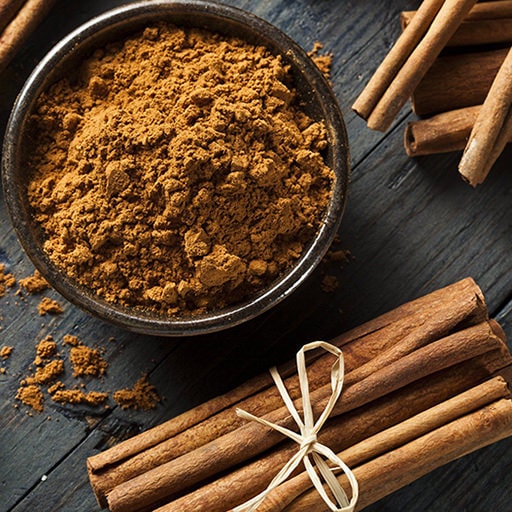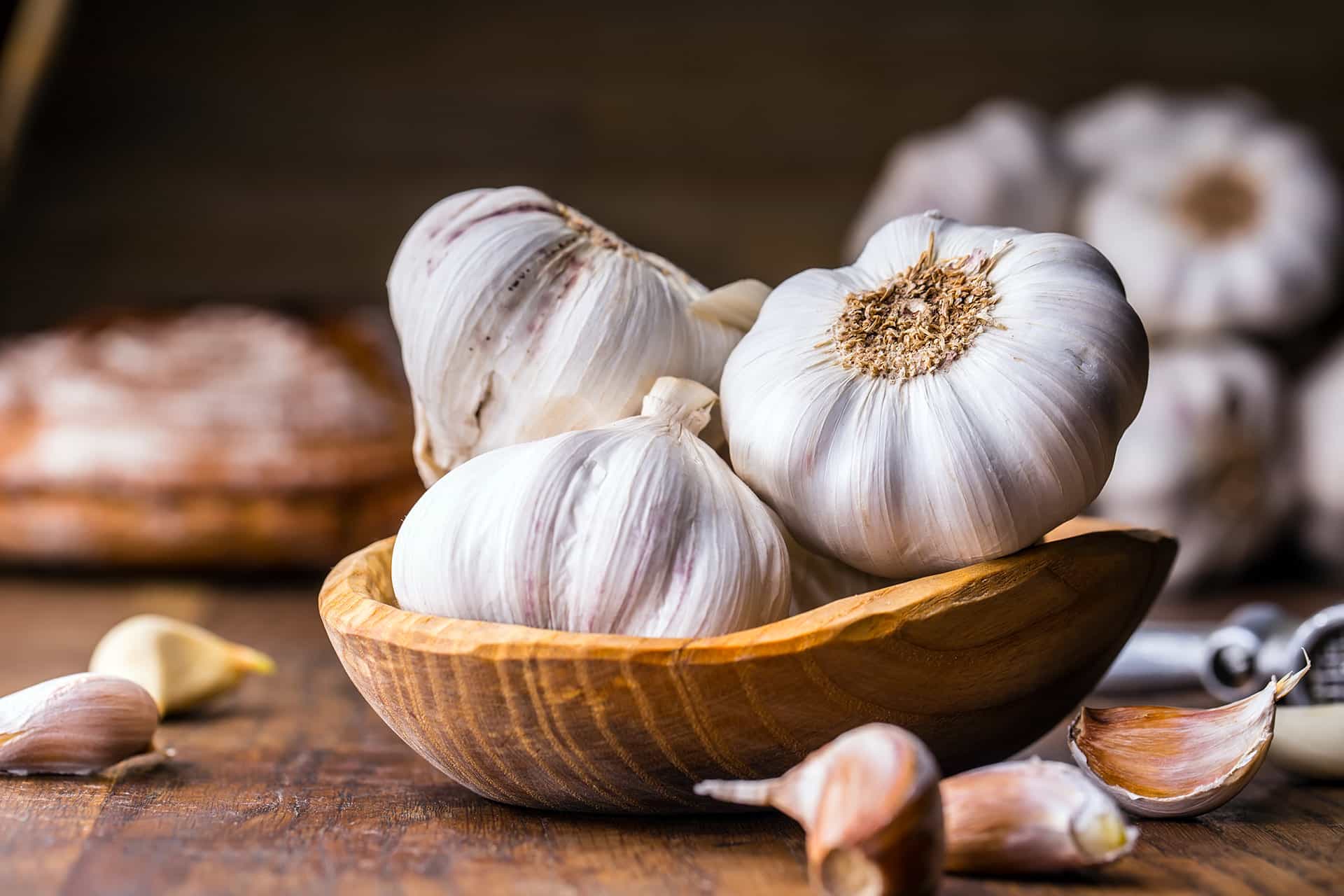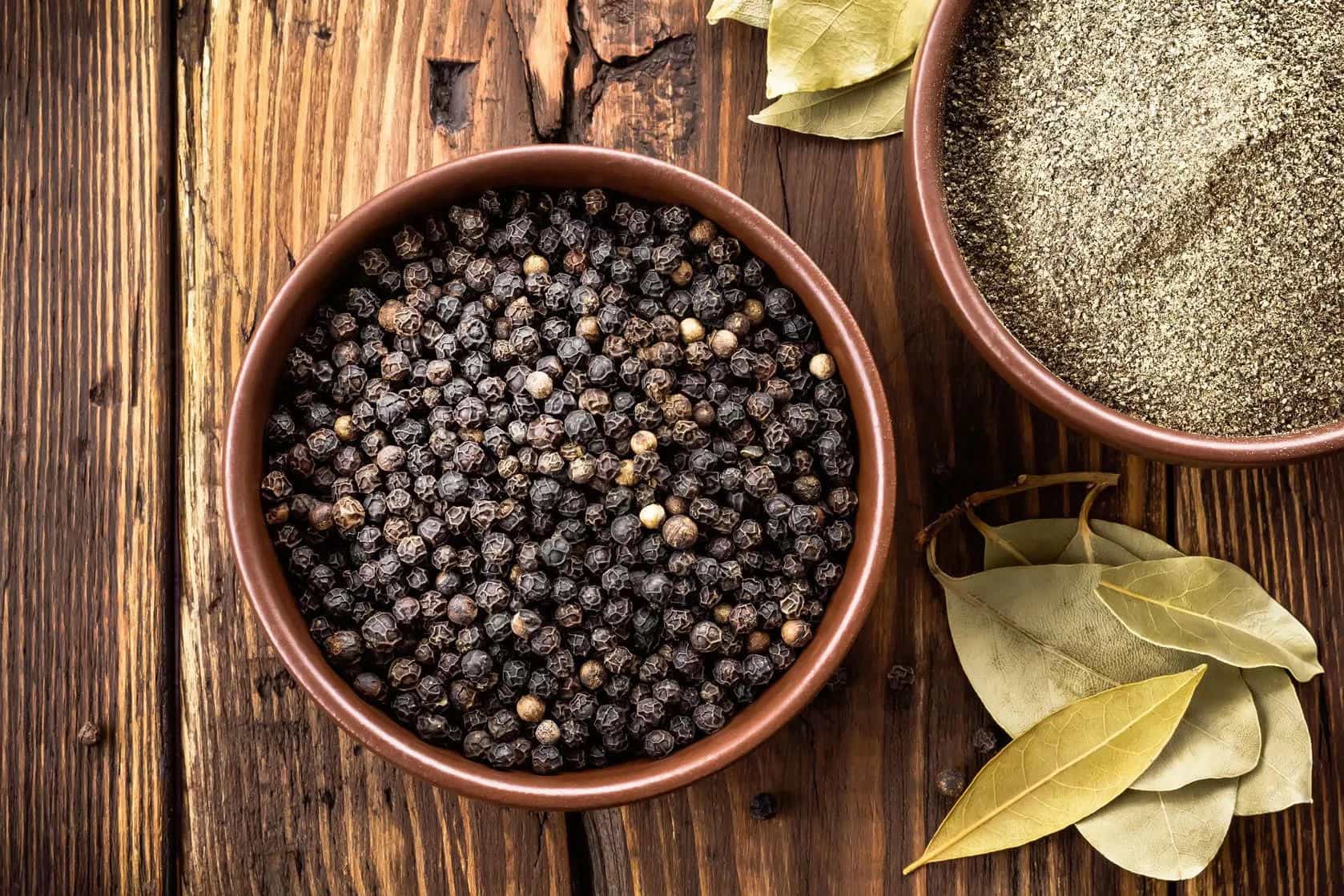Cinnamon Health Benefits and Side Effects
Written by: Christopher Karam | ✔️ Medically Reviewed by: Dr. Riad M., M.D - G.P and Micheal B., M.D | Last Updated: 2020 October 18
Table of Contents
- Break Down
- Health Benefits
- Side Effects
- Nutrition Facts
- Recommendation
- Frequently Asked Questions (FAQ)
- Related Articles
- Sources
- Recipes
- Buy Cinnamon Powder Now
Break down and Background
What is Cinnamon?
Cinnamon (Cinnamomum verum) is a spice made by the bark of a tropical evergreen tree. There are different kinds and species of cinnamon, such as:
Cinnamomum Cassia (or known as Chinese cinnamon)
Ceylon cinnamon (Verum, Sri Lanka cinnamon, or Cinnamomum Zeylanicum)
Burmannii (Korintje, Padang cassia, or Indonesian cinnamon)
Cinnamomum tamala (Indian bay leaf, Tezpat, Tezapatta, or Malabar leaf)
Loureiroi (Saigon cinnamon, Vietnamese cassia, or Vietnamese cinnamon)
Citriodorum (Malabar cinnamon)
Cinnamon is widely used in the health and fitness industry as a weight loss supplement, as it’s effective at stabilizing blood sugar levels and reducing hunger.
Cinnamon is also widely used in commercial food products, added into:
Herbal and non-herbal teas such as green tea, earl grey tea, cinnamon tea, white tea, and oolong tea
Breakfast cereals
Snack foods and sweets such as cinnamon rolls and cakes
Savory recipes such as Mexican grilled chicken, Moroccan chicken, steak rubs, South African yellow rice, Pannekoek, dumplings, and seared salmon
Coffee drinks such as lattes and mochas
Cinnamon is one of the most used cooking spice in the world. It’s mostly used in African, Asian, and Tropical cuisines and areas such as:
Central Asia (the Middle East)
China
East African countries
North African countries
India
Morocco
Mexico
The Caribbean
All types of cinnamon are powerful preservatives, similar to salt. Their chemicals are used in pickling brines and manufactured food preservatives, including cinnamate, cinnamic acid, and cinnamaldehyde.
In addition to adding an earthy flavor to cooking recipes and preserving food, cinnamon has many health benefits with few side effects.
Cinnamon contains many essential oil and healthy plant-based compounds that contribute to its list of beneficial effects. Cinnamon contains essential oils such as:
Cinnamate
Cinnamic acid
Cinnamyl Acetate
Eugenol
Eugenol Acetate
Cinnamaldehyde
These healthy compounds also have other health benefits, since these essential oils and antioxidants are anti-inflammatory, antidiabetic, anticancer, antiviral, and antimicrobial.
Studies have also found that these antioxidants lower the risk of cardiovascular disease, cancer, heart disease, Alzheimer’s disease, and Parkinson's diseases.
Origin and History
Cinnamon has been traditionally used in ancient and modern culture as an aromatic cooking ingredient and for medicinal uses
Its botanical name, Cinnamomum, is derived from the Hebraic and Arabic term amomon, meaning fragrant spice plant.
Dating back to Ancient Egypt around 2000 BC, cinnamon was highly prized and regarded as a gift for the ancient monarchs, kings, and rulers.
The Egyptians used cinnamon for a variety of purposes including healing, food preservation, improving immune system strength, fighting diseases, and overall health.
The Ancient Egyptian also used cinnamon, along with honey, sesame oil, orange blossoms, henna, as well as tree resin to embalm mummies, prevent food from spoiling, and also burned as an incense.
In the 15th and 16th centuries, cinnamon, willow, roses, fennel, ginger, cloves, and other herbs were used to help cure the sick and prevent symptoms of the Bubonic Plague.
Types of Cinnamon
Cinnamon spices and herbs come in two primary types: Cassia Cinnamon and Ceylon cinnamon.
Cassia Cinnamon
It’s also effective at managing blood glucose levels, keeping your energy levels up, and lowering your hunger cravings.
Cassia cinnamon’s bark is bright and light brown in color. It’s primarily produced in Vietnam, China, and Indonesia - and is mostly imported into Canada as well as the US
Cassia cinnamon is the most common type of cinnamon found in grocery stores.
Ceylon (True) Cinnamon
Ceylon cinnamon (Zeylanicum Cinnamomum) is also known as “true cinnamon”, since it’s a much higher quality cinnamon and is much safer to eat in large amounts. In high doses, cassia cinnamon can increase stress on the liver.
Ceylon cinnamon bark is dense and dark brown in color. Ceylon cinnamon sticks are fine and can be easily broken down into a powder.
Although Ceylon cinnamon loses more flavor during cooking, it’s much more aromatic and gives a light cinnamon flavor to the dish.
Ceylon true cinnamon is also more expensive than cassia, as it’s healthier and much harder to make. It’s mostly produced in Brazil, Sri Lanka, The Caribbean, Madagascar, and India.
Taste and Flavor
Cinnamon has a spicy, robust flavor and can handle high-heat cooking and baking.
Cassia cinnamon has a much stronger and spicier flavor compared to Ceylon. It’s mostly used in Mediterranean recipes.
All species of cinnamon have a mild citrus and deep woodsy flavor, very similar to the flavor of cloves, both of which are 2 major ingredients used in making earl grey tea.
Cultivating, Harvesting, and Planting Cinnamon
All types of cinnamon are harvested from the bark of a tree called, the true cinnamon tree (Cinnamomum Zeylanicum). It’s cultivated by having the bark peeled off the tree with a machete and is left to dry for up to 3 days, depending on the size of the bark.
As the cinnamon bark dries, it starts to curl into itself creating the iconic shape of cinnamon.
Cinnamon trees can also be planted at home, given the right nutrients. The soil should be slightly dry and the tree can then last for years without extra attention or care.
These usually grow up to 3 feet tall in smaller plant pots and can exceed a height of 8 feet in large 12 to 14 inch plant pots.
Growing cinnamon trees indoors can be a quick and easy way to get fresh cinnamon into your meals.
After the tree branches have grown to your liking, trim off a few branches and peel the bark with a paring knife.
Leave the bark to dry for 24 hours at room temperature. After the bark has hardened and curled up you can freely use it in your cooking recipes.
Characteristics of The Tree
The cinnamon tree (Cinnamomum Verum) is an evergreen green from the laurel family (Lauraceae).
Indoors, cinnamon can grow all year-round if it has enough bright light and direct sunlight.
It has light-green oval-shaped leaves that have many lines and ridges. The leaves are between 4 to 7 inches in length.
The cinnamon tree also grows berries that are dark brown and light brown.
They’re very small and have long stems at the bottom of their endosperm, similar to anise seeds. Dried cinnamon berries are also added and mixed into black pepper.
The only parts of the tree that are used is the bark and leaves. Cinnamon leaves can be used in tea and in certain brands of essential oils.
Extracted by steam distillation, cinnamon leaves yield between 0.5% to 1.8% of their mass in essential oil. It contains a lot of antioxidants, mostly containing eugenol.
Eugenol is also found in cloves, nutmeg, cinnamon bark, basil, and bay leaf.
Cinnamon trees also have a maximum height of 31 feet when grown outdoors, and 5 feet indoors.
The bark is reddish-brown and around 1 cm thick. The trunk of the tree can reach a maximum diameter of 2 feet when grown in tropical regions.
Cinnamon Nutrition Facts
According to the United States Department of Agriculture (USDA) National Nutrient Database, here are the levels of vitamins and minerals found in cinnamon:
Vitamin C
Calcium
Phosphorus
Potassium
Magnesium
Sodium
Folic acid
Vitamin A
Vitamin B6 (Pyridoxine)
Vitamin K
Vitamin E
Riboflavin
Thiamin
Niacin
Iron
folate
Zinc
Myristicin
Eugenol
Alpha-thujene
Limonene
Calories (energy)
Fiber (carbohydrates)
Medium-chain fatty acids
Protein
According to the USDA’s nutrition facts, parsley also contains flavonoids and antioxidants such as:
Alpha-carotene
Beta-carotene
Apigenin
Lycopene
Luteolin
Cooking With Cinnamon
Cinnamon is a highly versatile cooking spice that’s used in both savory and sweet recipes.
Ground cinnamon is used in cakes, cookies, and desserts all around the world, within many different cultures.
In the Middle East, cinnamon sticks are also used in savory chicken, lamb and beef dishes along with allspice, salt, pepper, and thyme.
North American cooking use ground cinnamon over apples and other firm fruit as well as cereals.
Cinnamon Health Benefits
1. Relieves Nausea and Digestive Issues
Both cassia and Ceylon cinnamon can be used to treat nausea, cramps, diarrhea, colds, and hay fever.
Specifically, cassia cinnamon has been scientifically proven to improve vitality and energy, blood circulation, improves heart health, and promote fat loss.
Multiple research papers found that people suffering from type 2 diabetes, taking 25 mg of cassia cinnamon per day for 1 month, found improved blood sugar levels and a reduced risk of heart diseases.
The healthy plant-based compounds and its ability to lower blood glucose can drastically reduce bad (LDL) cholesterol levels, the main contributor to heart disease and plaque buildup.
For thousands of years, cinnamon has been used to improve heart health and prevent diseases.
2. Is Full of Healthy Antioxidants
Both cassia and Ceylon cinnamon are full of extremely healthy antioxidants. Like garlic, oregano, and cumin, cinnamon has many powerful antioxidants and many medicinal health benefits.
Cinnamon consists of many healthy plant-based compounds and powerful essential oils, similar to most other herbs and spices.
Antioxidants are healthy compounds that fight free radicals and cell damage produced by metabolic processes in the body.
Free radicals and cell damage cause tears in the DNA and RNA strands, which accelerates aging, inflammation, neurological diseases, cardiovascular disease, and most notably - cancer.
Antioxidants are used to drastically reduce the impact and damage caused by free radicals. A lot of foods that are high in antioxidants can mitigate these side effects.
The health benefits and healthy properties of antioxidants include:
Antimicrobial
Antifungal
Anticancer
Antidiabetic
Anti-inflammatory
Antitermitic
Research shows that cinnamon contains a lot of different types of antioxidants, which includes:
Cinnamaldehyde
Eugenol
Linalool
Cinnamic acid
Polyphenolic compounds
Polyphenols
Flavonoids
Coumarin
Tocopherols
Carotenoids
Organic acids
Cinnamon supplements are currently being used all around the world for treating many different types of illnesses and diseases, such as:
Acute respiratory distress syndrome (ARDS)
Respiratory diseases
Skin infections: Cellulitis, Impetigo, and Staphylococcal (staph)
Skin viruses: shingles, warts, and herpes simplex
Menstrual difficulties: excess bleeding, Amenorrhea, Oligomenorrhea, Premenstrual syndrome (PMS), Premenstrual dysphoric disorder (PMDD), and Fibroids
Bacterial infections that cause: Diabetes, Cancer, Dementia and Alzheimer’s Disease, Age-related macular degeneration (AMD), and Arthritis
Cinnamon’s primary antioxidant is cinnamaldehyde, which is uniquely found in cinnamon and has many health benefits.
Other foods such as citrus and fruits, tomatoes, and cocoa powder (chocolate) all contain cinnamaldehyde as well, but cinnamon has the highest concentration.
3. Cinnamon Improves Skin Health
Cinnamon has many antibacterial properties that are great for treating acne, acne scars, and other blemishes.
Similar to coconut oil, cinnamon’s powerful antibacterial and antifungal properties effectively kills bacteria that cause:
Acne
Folliculitis
Rosacea
Staph
Staphylococcal scalded skin syndrome
Impetigo (school sores)
Furunculosis (boils)
Basal Cell Carcinoma
Methicillin (meticillin)
Eczema
Skin cancer
Tropical pyomyositis
An easy remedy for treating acne is by making a natural homemade skin mask by mixing:
1 teaspoon of cinnamon
3 tablespoons of honey
1 tablespoon of melted coconut oil
Applying this natural homemade face mask for 10 to 15 minutes will kill the bacteria on your face and reduce the swelling of any blemishes and bumps. The honey also restores skin moisture, reduces redness, as well as smoothens and softens the surface of your face.
Cinnamon is also found in certain brands of shampoo as it helps boost the health of your hair follicles and increases blood flow, making it healthier and easier to supplement nutrition into your hair.
Because cinnamon also increases blood flow, this allows the body to clean and flush out harmful toxins on, not only the surface of your skin but in your internal organs.
This allows the surface of your skin to glow and radiate, as your levels of toxins decrease.
A research study also found that cinnamaldehyde, in addition to cinnamon, also improves the production of collagen.
Only certain antioxidants boost collagen production, most of which are found in:
Astragalus
Coffee
Blueberries
Yerba mate
Licorice
Mulberry
Pomegranates and pomegranate extract
Basil, oregano, and thyme essential oils
4. Improves Digestive Health
According to the National Health And Nutrition Examination Survey (NHANES), 46% of Americans with at least 70 years old was suffered from a form of metabolic syndrome.
This is due to the increased risk with age and body mass. Of these people:
53% suffered from Abdominal obesity
40% from Hypertension
39% from Hyperglycemia
Multiple research studies have found that taking cinnamon supplements regularly, have improved the health of the digestive tract, overall gut health, and reduced the risk of digestive diseases.
Ingesting 10 to 20 mg of cinnamon can help lower carbon dioxide levels in the gut, reducing flatulence, lowering the body’s temperature, and helps with digestion.
Another study found that cinnamon benefits people who have metabolic syndrome and who are prone to cardiovascular diseases (CVDs).
Some of the observed benefits of cinnamon include:
Reduced blood pressure
Blood and plasma glucose
Obesity
Dyslipidemia
Also, cinnamon essential oils have powerful antimicrobial and antifungal properties, which attack bacteria and prevent digestive tract infections and increase nutrient absorption in the gut.
5. Stabilizes Blood Sugar Levels
Hundreds of research papers found that supplementing with cinnamon regularly can stabilize and lower blood sugar levels as well as blood lipids.
These benefits mostly come from cinnamaldehyde, the main active ingredient in cinnamon.
Cinnamon has many beneficial insulinotropic effects, as it’s a necessary peptide released by the small intestine while eating food.
Cinnamon regulates the release of insulinotropic peptides and insulin, which increases insulin sensitivity, regulates insulin release, and lowers insulin resistance in diabetics.
People with diabetes will benefit the most from including cinnamon into their diets.
Proanthocyanidin is a set of polyphenols found in cinnamon, that beneficially changes insulin signaling in fat cells allowing its release to be more consistent. Balancing and maintaining energy as well as blood sugar levels.
A scientific study conducted at the Research Center for Health (RCH) in Grenoble, France found that cinnamon counteracts the negative effects of:
Alzheimer’s Disease insulin responses
Brain insulin signaling
High fat and high sugar diet effects on cognitive health
High fat and high sugar diets are very harmful and have many side effects on blood sugar and insulin.
This is because glucose from sugar is highly refined making it very easy to break down, spiking blood sugar levels. Causing a surge in energy followed by a quick crash.
6. Cinnamon Lowers Cholesterol Levels
Cinnamon sticks have hundreds of studies that show how effective it is at lower cholesterol levels, especially in people suffering from type 1 and type 2 diabetes.
Cinnamon also stabilizes good (HDL) cholesterol and reduces bad (LDL) cholesterol.
However, these health benefits are slightly different depending on the type of cinnamon you take.
Cassia cinnamon is full of coumarin, this makes it have less bioactive ingredients that reduces harmful cholesterol levels.
Ceylon cinnamon is highly effective at reducing cholesterol levels, in addition to being much healthier and safer in larger doses.
A study conducted on various animals who’ve been fed cinnamon supplements found that over 8 days, they all experienced decreased blood pressure levels.
Additionally, 4 Chinese studies have also shown that all patients who took cinnamon supplements had lower recorded blood sugar levels as compared to participants who were given placebo pills.
7. Prevents Heart disease
Cardiovascular and heart disease is the leading cause of deaths worldwide.
Coronary artery disease (CAD) and heart disease are slow-developing illnesses that can cause congestive heart failure, cardiac asthma, chronic chest pains (angina), heart attacks, and strokes.
A poor diet eaten over multiple years can cause high blood pressure, high triglycerides, and high cholesterol levels.
Multiple studies have shown how cinnamon helps reduce the severity of cardiovascular risk factors and heart damage.
Both forms of cinnamon have also been proven to improve blood circulation throughout the cardiovascular system, including the heart.
Cinnamon is full of antioxidants and blood-thinning compounds that improve the health of your blood, veins and arteries, blood circulation, and reduces the risk of cardiovascular disease.
It also helps the body effectively repair itself it acts as a coagulant to prevent bleeding. Cinnamon can also help to remove blood impurities, lower cholesterol, and lower blood sugar.
8. Improves Brain Health and Function
As discussed earlier, all of the antioxidants found in cinnamon can help slow and prevent the effects of aging.
In addition to age-related diseases and illnesses such as:
Dementia
Alzheimer’s disease
Antioxidants trigger the release of brain proteins that prevent damage and changes to the DNA strands during reproduction.
A study involving mice taking cinnamon for 10 days found that mice who took cinnamon regularly had reduced levels of cortisol and other stress hormones produced, as compared to the group of mice who didn’t.
Also, the mice were measured for precursor proteins that cause Parkinson's disease and Alzheimer’s disease.
The study also found that the mice who had taken cinnamon had reduced precursors for both degenerative cognitive disorders.
Many animal studies have found that cinnamon can increase levels of sodium benzoate and neurotrophic factors in the brain significantly.
Some of the health benefits of sodium benzoate include:
Reduces symptoms of liver disease
Schizophrenia
Multiple Sclerosis (MS)
Anxiety disorders
Depression
Neurotrophic factors stimulate the production of new neurons and protect older ones, which can also slow the progression of Parkinson's disease and Alzheimer’s disease.
9. Has Powerful Anti-Inflammatory Properties
Cinnamon’s anti-inflammatory properties can help ease many types of swelling and inflammatory diseases.
The natural plant-based compounds and antioxidants found in cinnamon have powerful anti-inflammatory and antibacterial health benefits.
There are many health benefits of reducing inflammation, such as:
Reduced muscle stress
Reduces joint pain
Lowers the severity of cramps
Prevents diarrhea and gastroenteritis
Improves heart health
Improves cognitive function and brain health
Oral pain, inflammation, infections, and toothaches
10. Reduces The Risk of Cancer
Cinnamon is full of antioxidants which makes it a powerfully anticancer spice.
Antioxidants are highly effective at killing cancer cells and triggers cancer cell death.
Cinnamon also slows and reduces the growth (proliferation) of cancer cells and inhibits them from procreating.
A study conducted by the National Institute of Health in the U.S (NIH) found that earthy cooking spices, like cinnamon, stimulate the production of enzymes in the colon that eliminates:
Risk of intestinal cancer
Colon toxicity
Cancer proliferation
Cinnamaldehyde is the primary compound in cinnamon that triggers cancer cell death (apoptosis) and also inhibits the growth of tumors.
Also, cinnamon’s antioxidants help prevent DNA damage and deterioration, further preventing all types of cancers from forming.
11. Helps with Weight loss
Cinnamon is a widely used supplement in the health and fitness industry, because of its main health benefit which increases fat burning and your body’s metabolism.
Hundred of clinical and research studies have shown that cinnamon increases insulin sensitivity, responsiveness, and production as well as reduces blood sugar.
Both functions are necessary for weight loss, especially at lower body fat percentages.
Cinnamon also boosts your metabolism as it also increases your heart rate, improving blood flow and recovery after training.
Cinnamon is essential to include in any weight loss diet plans and all regular diets, unless you suffer from certain heart conditions.
It also reduces inflammation and water weight since it’s highly antibacterial, anti-inflammatory, and a natural diuretic.
Cinnamon Side Effects and Detriments
Cinnamon is generally a healthy cooking spice that has very few side effects.
However, most types of cinnamon should be taken in moderation as overeating can cause negative effects on the liver, cardiovascular system, and can have negative interactions with medication.
Coumarin is a highly potent natural compound that has strong blood-thinning effects, mostly found in Cassia cinnamon.
Cassia cinnamon is much more harmful in higher amounts, compared to Ceylon.
Coumarin is a colorless solid that can cause several side effects when consumed in high amounts.
While thinning blood can be useful for people who have certain heart conditions and other medical needs, it can be problematic when taken shortly after taking certain drugs and medication.
1. Cinnamon May Cause Liver Damage
Studies have found that a large amount of coumarin, which is mostly found in cassia, may cause liver damage and liver toxicity in high doses.
Coumarin can damage the liver and it increases your risk of cancer.
Multiple animal studies have proven that large amounts of coumarin can increase the risk of cancerous tumors in the liver, kidneys, and lungs.
Ceylon cinnamon contains only tiny amounts of coumarin, making it much safer.
In the United States, the recommended dietary allowance (RDA) for cinnamon is 1 teaspoon per day for cassia and 2 teaspoons for Ceylon cinnamon.
These amounts are enough to get all of the researched health benefits such as nutrient absorption, weight loss, and improved heart health while minimizing the risk of side effects.
2. May Cause Allergic Reactions
Although uncommon, some people are allergic to all types of cinnamon.
Allergic reactions are triggered by the cinnamaldehyde compound. Cinnamaldehyde is abundant in both Cassia and Ceylon cinnamon, as well as certain cosmetic products and body washes.
Cinnamaldehyde allergies include reactions such as:
Swollen tongue or gums
Mouth sores
Itching and burning in the mouth and/or throat
Difficulties breathing
Skin patches
Anaphylactic shock (in extremely rare cases)
Your doctor or healthcare provider can give you a skin patch or allergy test if you are concerned about being allergic to cinnamon.
Additionally, never eat large amounts of raw cinnamon powder as it can lead to clogging your airways.
The powder clumps together and may cause choking because the lungs can’t break down cinnamon fibers.
Repeated exposure of cinnamon in the lungs can eventually accumulate inside the lungs and cause infections such as aspiration pneumonia
3. Lowers Blood Sugar Levels
People who suffer from low blood sugar levels should avoid cinnamon entirely.
Low blood sugar can cause many negative health effects such as nausea, vomiting, fainting, and heart failure in extreme cases.
As cinnamon lowers blood sugar levels, it can also amplify these side effects.
If cinnamon is used in excess, it can also cause hypoglycemia, dizziness, fainting, and tiredness. Cinnamon should also be avoided before any kind of surgery.
4. May Negatively Interact With Medications
A lot of health conditions make it so that people who take certain drugs and medications can’t have cinnamon.
People with diabetes, heart disease, and illnesses needing antibiotics can suffer serious injuries by taking cinnamon.
Although cinnamon health benefits, it has quite a few side effects when taken along with certain drugs.
Drugs and meditations that have negative interactions with cinnamon include:
Antibiotic medication
Diabetic drugs
Blood thinners
Heart medicines
Rating and Recommendation
Extremely Recommended
Overall, cinnamon is a healthy cooking ingredient that contributes to a healthy lifestyle and helps with weight loss.
Between both kinds of cinnamon, Ceylon and Cassia, Ceylon cinnamon is the healthiest option.
Cinnamon is full of health benefits and few side effects. It’s full of powerful antioxidants which:
Lowers blood sugar levels
Promotes heart health
Liver health
Fat loss
Improved brain health
Lowers the severity and risk of Parkinson's disease and Alzheimer’s disease
Above all, cinnamon is a delicious cooking ingredient that you can add to many different kinds of recipes and simple foods.
Cinnamon extract is also used in certain medicines to help relieve digestive issues and metabolic issues, especially in diabetics.
Its best is to have 1 teaspoon of cinnamon every day, is it’s very beneficial as it’s also highly anti-inflammatory.
Here’s the list of the health benefits of cinnamon:
Relieves Nausea and Digestive Issues
Is Full of Healthy Antioxidants
Cinnamon Improves Skin Health
Improves Digestive Health
Stabilizes Blood Sugar Levels
Cinnamon Lowers Cholesterol Levels
Prevents Heart disease
Improves Brain Health and Function
Has Powerful Anti-Inflammatory Properties
Reduces The Risk of Cancer
Helps with Weight loss
Here’s the list of side effects of cinnamon:
Cinnamon May Cause Liver Damage
May Cause Allergic Reaction
Lowers Blood Sugar Levels
May Negatively Interact With Medications
However, avoid consuming cinnamon in large amounts. The recommended servings in bread, desserts, fruit, and drink recipes are usually safe and loaded with nutrition.
Frequently Asked Questions
Articles and Sources

Cinnamon Nutrition Facts
Serving Size 100 g (about 3.5 Oz or 0.44 Cups)
| Amount Per Serving | ||
|---|---|---|
| Calories 247 | Calories from Fat 11 | |
| % Daily Value* | ||
| Total Fat 1.2 g | 1 % | |
| Saturated Fat 0.3 g | 1 % | |
| Polyunsaturated fat 0.1 g | ||
| Monounsaturated fat 0.2 g | ||
| Trans Fat 0 g | ||
| Cholesterol 0 mg | 0 % | |
| Sodium 10 mg | 0 % | |
| Potassium 0.431 g | 12 % | |
| Total Carbohydrate 81 g | 27 % | |
| Dietary Fiber 53 g | 211 % | |
| Sugars 2.2 g | ||
| Protein 4 g | 8 % | |
| Vitamin A 5 % | Vitamin C 6 % | |
| Vitamin E 0 % | Vitamin K 0 % | |
| Vitamin D 0 % | Vitamin B6 10 % | |
| Calcium 100 % | Iron 46 % | |
| Magnesium 15 % | Cobalamin 0 % | |
Calories per gram:
Fat: 9 | Carbohydrate: 4 | Protein: 4
Source: USDA's Nutrient Database














